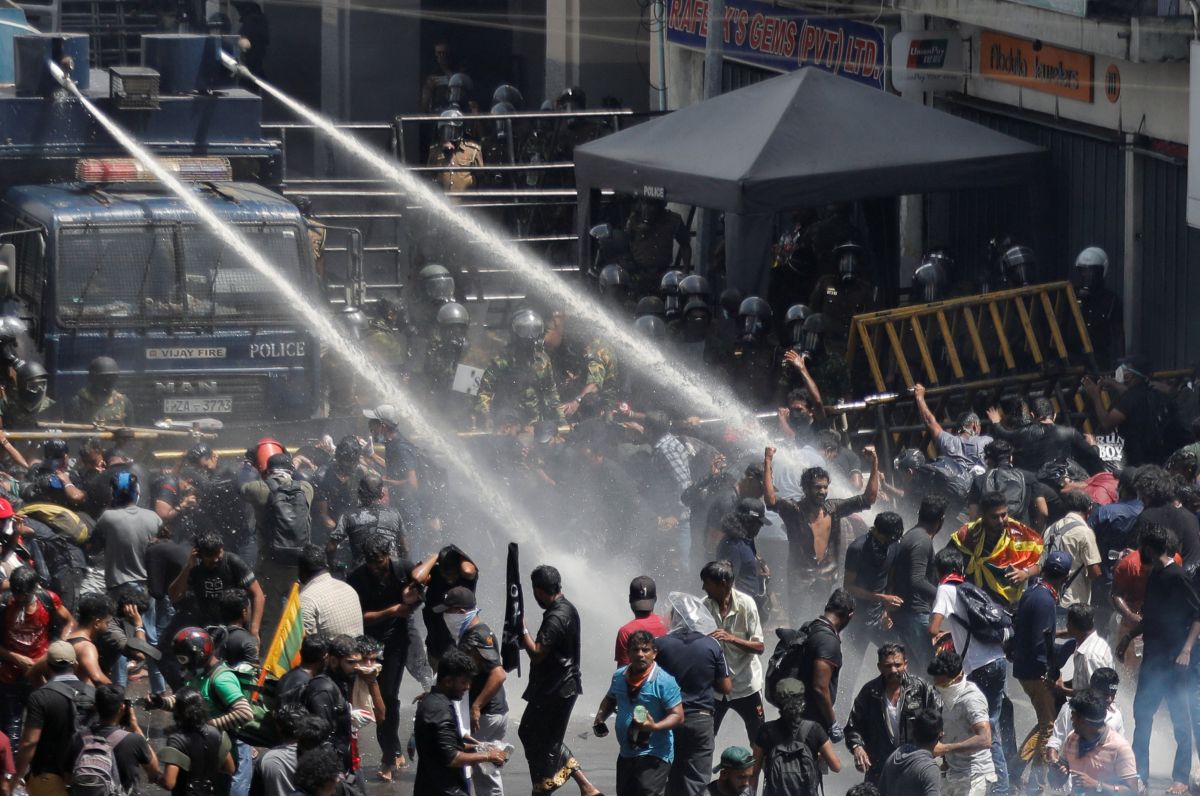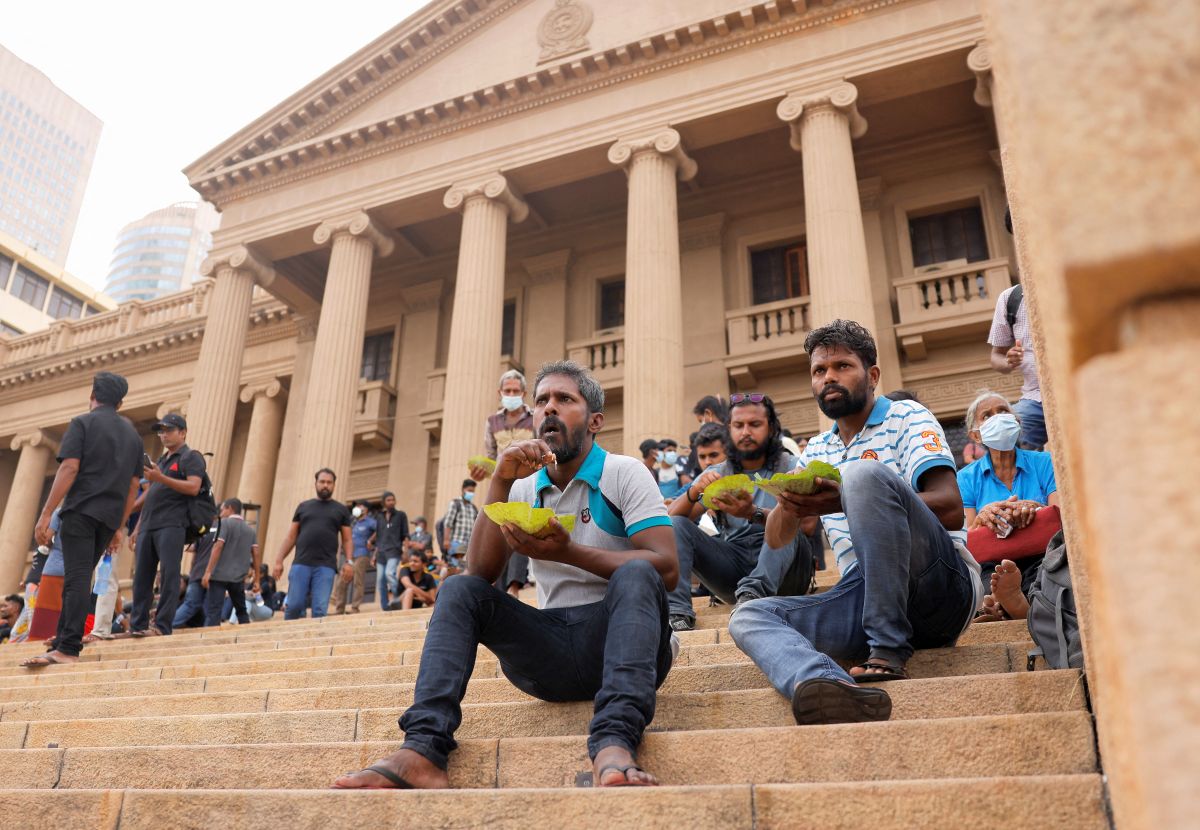 | « Back to article | Print this article |
'The worry among many international actors is whether there will be stability to provide assistance to the government because the political developments in the last few months are a real concern.'

"Political stability is needed to create an environment which is conducive for different actors to take forward urgent reforms and measures to resolve the economic crisis and the growing humanitarian crisis," says Bhavani Fonseka, the well-known Sri Lankan constitutional and human rights lawyer.
A senior researcher at the Centre for Policy Alternatives that aims at strengthening civil society contribution to public policy, Ms Fonseka has a bachelor's degree in law from the University of Bristol in the UK, a master's in law from Denver University in the US and a master's in public administration from Harvard.
"Some of the problems that Sri Lanka is facing is directly linked to individuals who refused to accept advice from the experts," she tells Rediff.com's Archana Masih in a telephone interview from Colombo.
The concluding segment of a multi-part interview:
Who are the leaders who can urgently fix Sri Lanka's problems in the short term?
It's not a problem; it's a massive crisis.
I don't think one or two individuals can do it; we will need an entire team. We need people who have the expertise and are also able to understand what Sri Lanka is heading towards.
We also need experts who have worked internationally in such situations.
There are many who want to help, but again, I think they are a bit wary about getting involved if there's no political stability.
What can be done to resolve the economic nightmare and should the next government ask India and China to come to Sri Lanka's rescue?
It has been the case in the last few months. There has been assistance from India, China and other countries who are interested to engage with Sri Lanka. The Sri Lankan government has made appeals and reached out.
Sri Lanka alone cannot handle such a dire crisis. The next government will have to look to international actors for assistance and explore every potential avenue.

Why do you think other countries like the US and Russia have been reluctant to help when they should be helping Sri Lanka more?
The US, for example, has agreed to support us. USAID has agreed to give assistance. The government is talking to Russia about oil imports.
The Sri Lanka government has reached out to any country that is able to assist and there are ongoing discussions with other countries.
The worry among many international actors is whether there will be stability to provide assistance to the government because the political developments in the last few months are a real concern.
No one knows who is going to be in charge, who will be the president and who will be in government to provide the stability to carry through a programme.
How long do you think this nightmare will continue? A few more months? A year? What is your assessment?
One doesn't know; if we knew that answer, things would be much clearer. It's unlikely to be resolved anytime soon.
Anyone who has an understanding of the economic dimension feels that this crisis is going to take a while to be resolved.
The prime minister said 2023 is going to be a tough year for Sri Lanka. But it could get much, much, worse and go beyond what he has predicted. Unless, of course, urgent steps are taken to provide political stability and there's a path forward with effective plans.
If things don't move, I think we're going in for several years of a challenging situation.

If the next government asked you for advice on what can be done to fix the crisis, what would you tell them?
I would say that we need political stability and a multi-pronged approach.
Political stability is needed to create an environment which is conducive for different actors to take forward urgent reforms and measures to resolve the economic crisis and the growing humanitarian crisis.
The crisis cannot be approached in silos because the problems are inter-connected.
Some of the problems that Sri Lanka is facing is directly linked to individuals who refused to accept advice from the experts.
Sri Lanka needs to have the correct team which has the expertise to make an immediate plan as well as a long-term plan.
In view of the massive task confronting Sri Lanka, it has to have a holistic approach, rather than saying that the economic crisis will be addressed first and then move on to others issues.
Feature Presentation: Aslam Hunani/Rediff.com